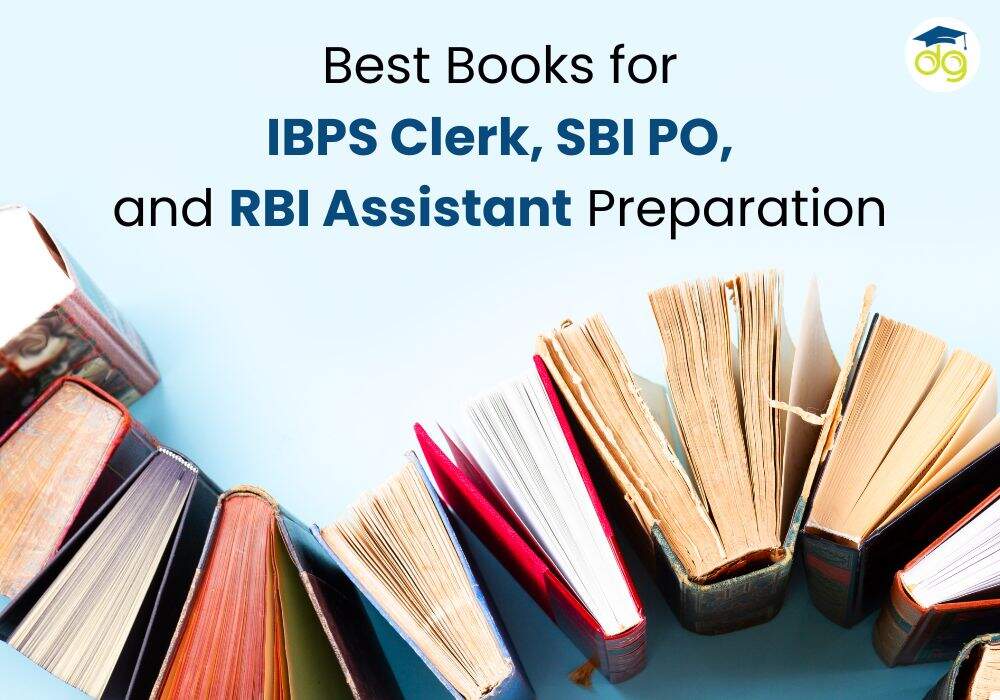Daily Study Plan for JEE Aspirants Starting from Class 11 (2025 Guide)
Smart daily routine and subject-wise tips for JEE Main & Advanced prep
The Joint Entrance Examination (JEE) is not just a test of knowledge but a test of consistency, clarity, and time management. Every year, lakhs of students attempt JEE Main and JEE Advanced, but only a few make it to top engineering colleges like IITs, NITs, and IIITs. If you're starting in Class 11, you're in the perfect position to build a rock-solid foundation that can carry you to success.
This blog serves as a step-by-step daily plan for Class 11 students preparing for JEE. From subject-specific tips to hourly routines, this plan has been designed keeping in mind both school curriculum and JEE preparation. Let’s dive deep.
Why Starting Early (Class 11) Matters
Most JEE aspirants regret not taking Class 11 seriously. The concepts taught in Class 11 form the foundation for Class 12 topics. For instance:
- Understanding of basic mechanics in Physics is crucial for topics like SHM and waves.
- Stoichiometry in Chemistry leads to equilibrium, thermodynamics, and electrochemistry.
- Quadratic equations and functions in Math are used throughout calculus and coordinate geometry.
By starting early, you don’t just stay ahead of the curve—you master it.
Setting Up the Right Mindset
Before getting into the routine, focus on your mindset:
- Discipline beats motivation. Show up daily.
- Small steps daily > Big steps occasionally.
- No shortcuts. Concepts > Formulas.
- Avoid comparison. Your only competition is your past self.
Weekly Time Investment
Your typical Class 11 schedule (assuming school is 6 days/week):
- School hours: 6 hours/day
- Tuition/Coaching: 2 hours/day
- Homework + JEE study: 3–5 hours/day
On weekends, the time doubles, giving you 8–10 hours of focused preparation.
DAILY STUDY PLAN STRUCTURE
Let’s break down a sample weekday and weekend routine.
Weekday Routine (Monday to Saturday)
Time | Activity |
| 5:30 AM | Wake up |
| 6:00 – 7:00 AM | Revise yesterday’s topic / practice 10 questions |
| 7:00 – 1:30 PM | School |
| 2:00 – 3:00 PM | Lunch + Nap (Recharge your brain) |
| 3:00 – 5:00 PM | Coaching / Tuition Class |
| 5:00 – 6:00 PM | Break + Walk + Light Snacks |
| 6:00 – 8:00 PM | Self-study: Physics / Chemistry alternate days |
| 8:00 – 8:30 PM | Dinner |
| 8:30 – 10:00 PM | Maths Practice + Revision |
| 10:00 PM | Sleep |
Key Tips:
- Rotate subjects every 2 days for balance.
- Use school time to clear NCERT basics.
- Don’t overload. Stick to focused 2-hour slots.
Weekend Routine (Sunday / One Free Day)
Time | Activity |
| 6:30 AM | Wake up |
| 7:00 – 9:00 AM | Weekly Test (Mock Test / Coaching Sheet) |
| 9:00 – 10:00 AM | Breakfast + Break |
| 10:00 – 12:00 PM | Test Analysis + Error Log |
| 12:00 – 1:30 PM | Revise weak topic from test |
| 1:30 – 3:00 PM | Lunch + Break |
| 3:00 – 5:00 PM | Practice tough chapter (PYQs or NCERT Exemplar) |
| 5:00 – 6:30 PM | Fun break – family, hobby, walk |
| 6:30 – 8:00 PM | Summary Notes / Flashcards |
| 8:00 – 10:00 PM | Light topic + Plan for next week |
Use Sundays for:
- Testing what you’ve learned.
- Reviewing mistakes.
- Setting targets for the next week.
Subject-Wise Strategy
Let’s break down how to approach each subject daily.
Physics
Focus Areas (Class 11):
- Mechanics
- Thermodynamics
- Oscillations & Waves
Daily Plan:
- 45 min concept building (HC Verma, Coaching notes)
- 45 min practice (DC Pandey + PYQs)
Pro Tip: Always derive formulas once before memorizing. Visualize problems.
Chemistry
Chemistry is divided into:
- Physical Chemistry – Numericals & concepts
- Inorganic Chemistry – Memorization + NCERT
- Organic Chemistry – Mechanisms + logic
Daily Plan:
- 30 min NCERT reading (Inorganic/Organic)
- 30 min Physical chem numericals (RC Mukherjee)
- 20 min flashcard revision
Pro Tip: Use periodic table chart on your wall. Practice daily.
Mathematics
Core Areas:
- Algebra (Quadratics, Sequence, Series)
- Trigonometry
- Coordinate Geometry
- Calculus basics (Limits & Functions)
Daily Plan:
- 1 hour conceptual problems (Coaching sheets)
- 1 hour timed problem-solving
- Weekly: One tough chapter revision (Permutation, Probability, etc.)
Pro Tip: Keep error notebook of tricky questions.
Monthly Breakdown of Class 11 Syllabus (JEE Focused)
Month | Physics | Chemistry | Maths |
| April | Units & Motion | Basic Concepts + Mole | Sets, Relations, Functions |
| May | Newton's Laws | Atomic Structure | Trigonometry |
| June | Work, Energy | Thermodynamics | Quadratic Equations |
| July | Circular Motion | Chemical Equilibrium | Sequence & Series |
| Aug | Rotational Motion | Redox, States of Matter | Straight Lines |
| Sept | Gravitation | Gaseous State | Circles, Conic Sections |
| Oct | SHM, Waves | Organic Basics + Isomerism | Limits, Derivatives |
| Nov | Sound & Waves | Hydrocarbons | Binomial, Probability |
| Dec | Full Revision | Full Revision | Full Revision |
Note: Adjust timeline based on coaching speed.
Effective Time Blocking Tips
- Study in 45:15 ratio – 45 min study + 15 min break
- Use Pomodoro on tough chapters
- Morning for new learning, evening for practice
- Night is ideal for review and summarizing
Key Resources You Should Be Using
Subject | Books |
| Physics | NCERT, HC Verma, DC Pandey |
| Chemistry | NCERT, RC Mukherjee, OP Tandon |
| Math | NCERT, RD Sharma, Cengage / Arihant |
Bonus Tools:
- YouTube: Physics Wallah, Mohit Tyagi, Organic Chemistry Tutorials
- Apps: Embibe, Toppr, Unacademy, Vedantu
- Doubt Solving: Telegram/Discord study groups
Avoid These Common Mistakes
- Ignoring NCERT—especially in Chemistry
- Studying without targets
- Not solving previous year questions early
- Studying long hours without breaks
- Comparing with toppers without knowing their routine
- Getting distracted by too many resources
Weekend Test Strategy (Very Important)
Make this a ritual:
- Saturday night: Revise the week's content
- Sunday morning: Attempt timed test (chapter-wise or mixed)
- Sunday noon: Analyze mistakes
- Sunday evening: Revise mistakes + summary notes
How to Track Your Progress
Metric | How to Track |
| Chapters Completed | Keep checklist in diary or app |
| Mock Test Scores | Maintain Excel sheet / Google Sheets |
| Mistakes Log | Maintain dedicated notebook (reason-based log) |
| Doubts Solved | Weekly review: Unsolved → Clarified |
| Revision Frequency | Color-coded calendar tracking |
Staying Motivated for 2 Years
Here’s the truth—motivation will fade. The secret to JEE success lies in consistency and systems.
- Create a Vision Board – Paste your dream college, ranks, quotes.
- Take monthly breaks – Short fun outings, movies, time with friends.
- Follow inspiring toppers’ strategies – But don’t copy everything.
- Track small wins – Finishing a chapter, improving a test score.
Final Words
Class 11 is the foundation year for JEE. If you build strong roots now, Class 12 becomes easier, and your confidence soars. Stick to the daily plan, review weekly, and stay honest with yourself.
Every hour you invest now is a step closer to your dream IIT.
If you’re a NEET aspirant looking for a community, expert tips, and real guidance from experienced mentors, join SELIN Club—a trusted educator-led platform that helps students and teachers build academic success together.
Visit SELIN now to explore detailed study plans, resource links, mentor advice, and personalized help tailored to NEET preparation.
Quick Recap – 7 Daily Habits for Class 11 JEE Aspirants
- Wake up early and revise
- Attend school mindfully – don’t waste time
- 2 hours of focused self-study every evening
- Weekly mock test + analysis
- Error log maintenance
- NCERT first, reference books second
- Stay consistent, not perfect
Categories
Archives
- August 202514
- July 202524
- June 202524
- May 202526
- April 202530
- March 202523
- February 202513
- January 202523
- December 202429
- November 20246
- September 20245
- August 202422
- July 202415
- May 20249
- June 202424
Similar Posts

Daily Study Plan for JEE Aspirants Starting from Class 11 (2025 Guide)
by Skoodos Bridge

Data Interpretation for Banking Exams: 5 Must-Practice Types 2025
by Skoodos Bridge

Most Important GK Topics for SSC CGL 2025 with Free PDF Download
by Skoodos Bridge

Best Books for NEET Preparation 2025: Physics, Chemistry & Biology
by Skoodos Bridge

UPSC Mains Answer Writing Practice: Format, Tips & Examples 2025
by Skoodos Bridge

CAT VARC Preparation: Boost Reading Speed and Accuracy for 2025
by Skoodos Bridge

Best Reference Books for JEE Physics, Chemistry & Mathematics
by Skoodos Bridge

NEET PYQ Analysis 2025: Trends, Predictions & Preparation Tips
by Skoodos Bridge

Best Books for IBPS Clerk, SBI PO & RBI Assistant Exam Preparation
by Skoodos Bridge


Leave a Comment